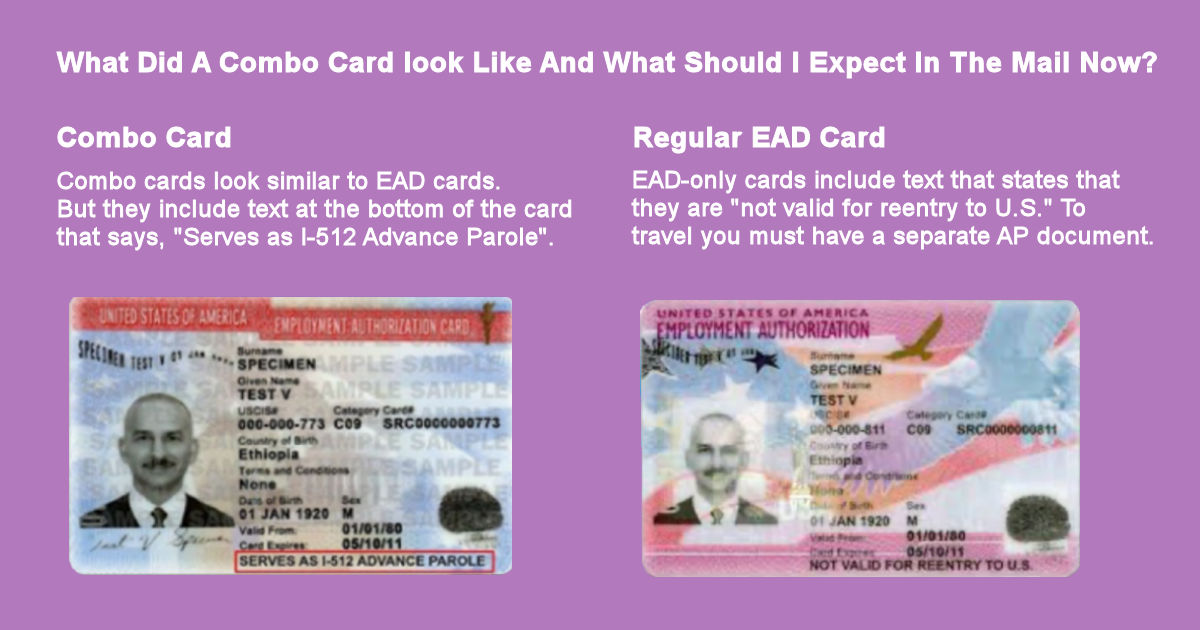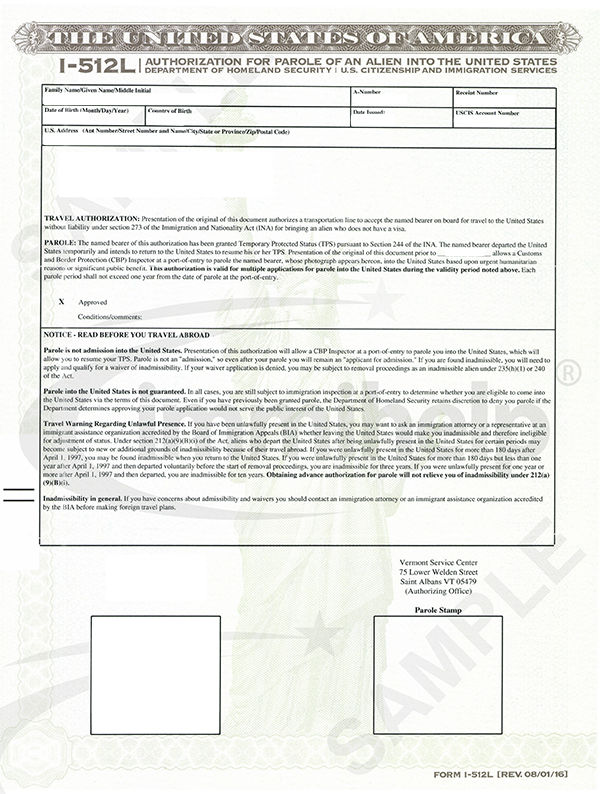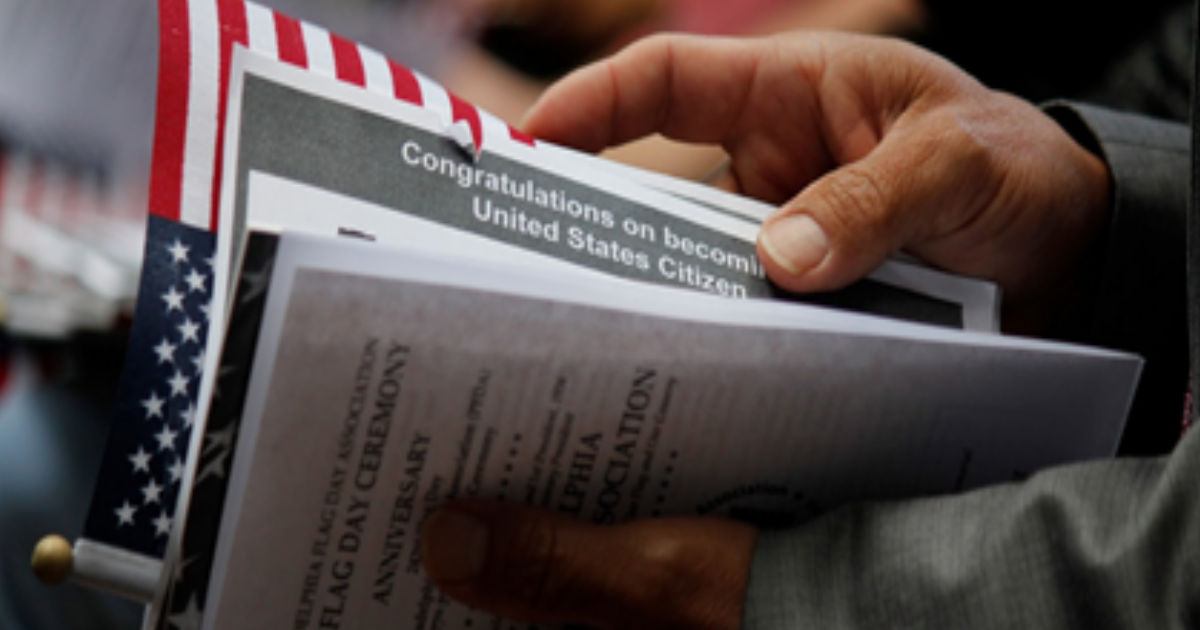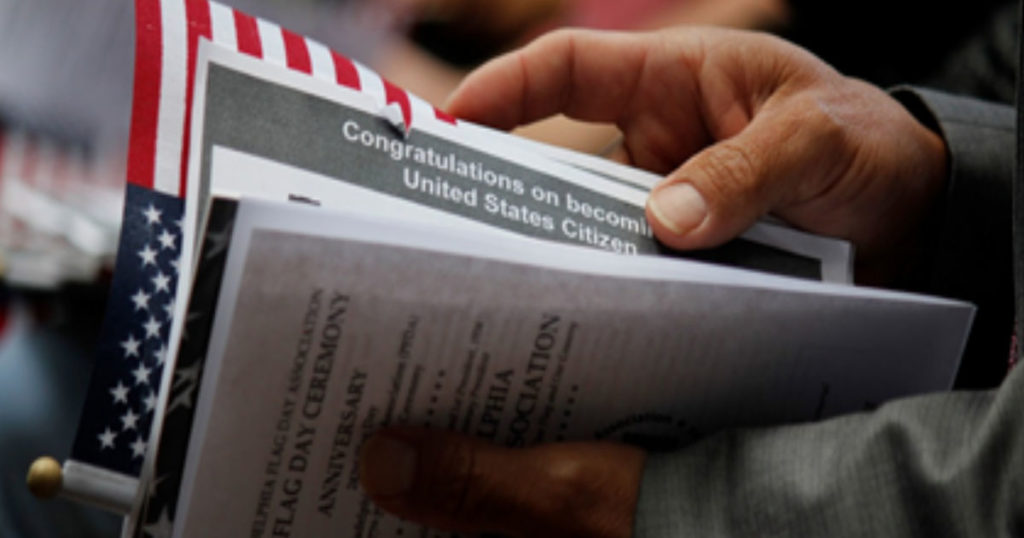No More Combo Cards?
Eligible individuals have the option to apply for a green card from within the United States, through a process called adjustment of status. The application to adjust status is called a Form I-485, and it must be accompanied by an additional form that establishes the basis on which the applicant qualifies for the green card. This is typically either a Form I-130 (if applying for a green card through family), I-140 (if applying for a green card through employment), or I-526 (if applying for a green card based on investment).
Filing the Form I-485 application to adjust status, however, does not give the applicant the ability to travel or work in the United States. For that, the applicant must file the Form I-765 application for work authorization, and the Form I-131 application for advance parole for travel authorization. If the green card applicant leaves the U.S. before receiving travel authorization, their adjustment of status application will be abandoned.
Are You A Green Card Applicant with a Pending I-485 Adjustment of Status Application?
If so, you may be expecting to receive an employment authorization document (EAD) and advance parole (AP) combo card. However, USCIS recently began issuing the two documents separately.
What Is a Combo Card?
In 2011, USCIS announced that they would begin issuing employment and travel authorization on a single “combo” card for those green card applicants already livig lawfully in the United States and filing an adjustment of status (AOS) application. By combining the documents, USCIS enabled applicants to carry a single document that was more durable and secure than the previous AP document.
What Did a Combo Card Look Like and What Should I Expect in the Mail Now?
Combo Card
Combo cards look very similar to EAD cards,
but they include text at the bottom of the card
that says, “Serves as I-512 Advance Parole.”
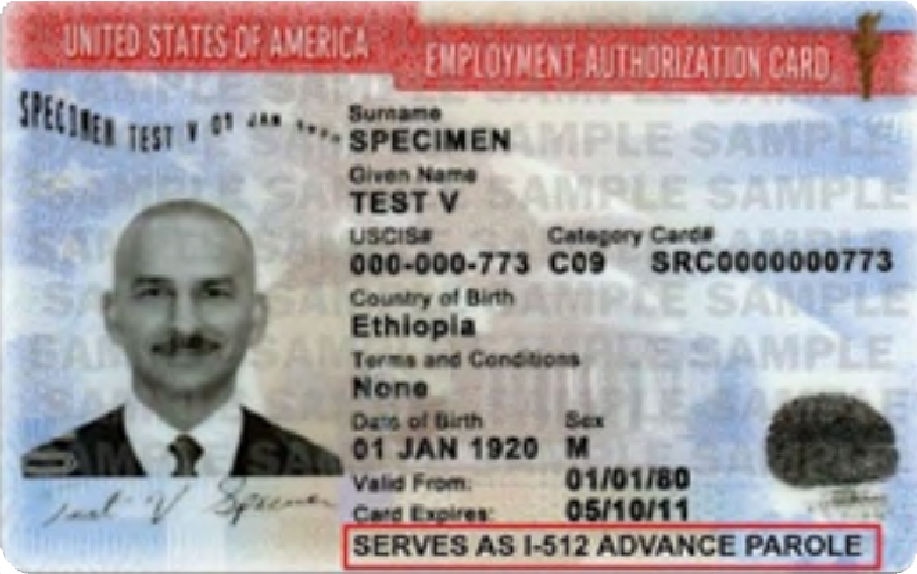
Regular EAD Card
EAD-only cards include text that states that
they are “not valid for reentry to U.S.” To
travel you must have a separate AP document.
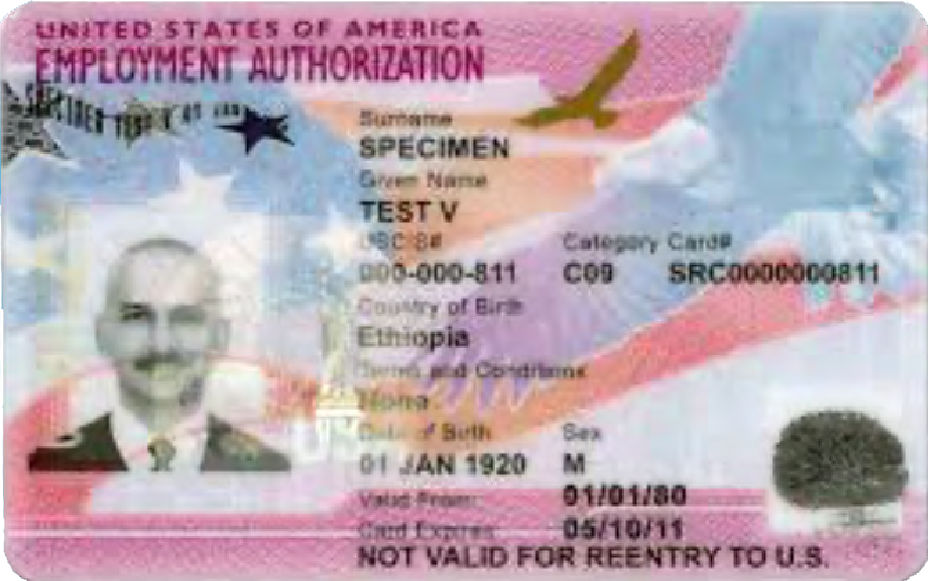
Why Did USCIS Stop Issuing Combo Cards and How Does This Affect You?
As of April 2022, USCIS has stopped issuing combo cards in an effort to reduce the growing EAD backlogs that have created employment interruptions for applicants. Because the two documents will now be sent separately, you may receive your EAD card before your AP document.
It is important to understand that the EAD card alone will not permit you to travel and re-enter the United States. You must carry your separate AP document issued by USCIS to travel.
To avoid any issues, applicants should file their I-765/I-131 applications well in advance of their anticipated employment and planned travel abroad.
Applicants should continue to monitor their pending EAD applications closely and be realistic about making travel and/or employment plans while they wait for their documents to be issued.
Questions About Your Adjustment of Status?
If you would like to schedule a free immigration consultation, please text (214) 838-0045 or call (214) 838-0045 .

